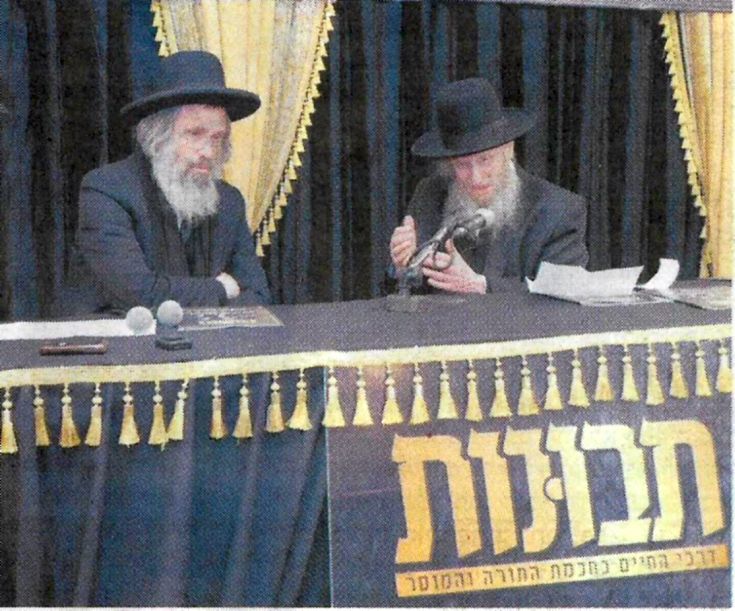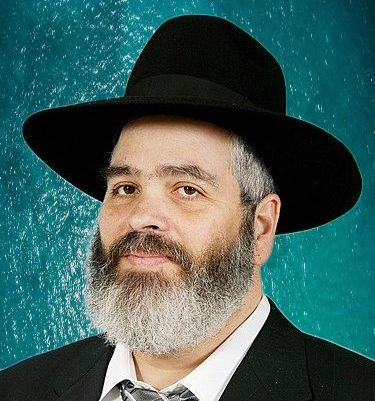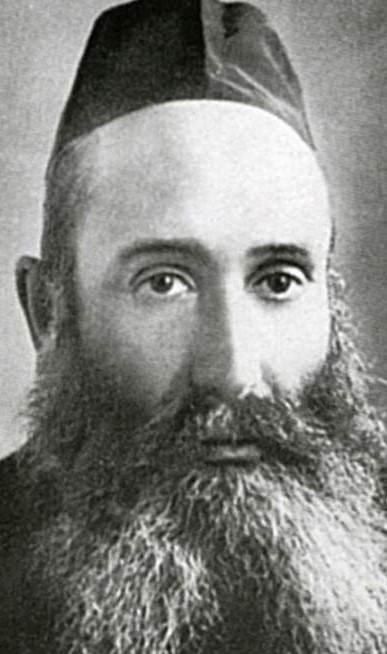  |
|
| |||||
This Google Custom Search looks only in this website. Guidance of HaRav Don Segal shlita
Tha Mashgiach spoke at a special gathering at the Lederman shul in Bnei Brak to give guidance for our time.
*
Klall Yisroel finds itself in a difficult situation, verily we are faced with [enemies] 'Standing over us to destroy us.' We have no one upon whom to rely except for our Father in Heaven.
The Klausenberger Rebbe rhetorically asked an elder Zionist leader, "On what do you rely? Can't you see that even here, in Eretz Yisroel, we are like in a ghetto. We are surrounded by millions of Arabs on all sides who need do no more than come and lie on top of us! It is an open miracle that we are still alive. They can easily overcome us — even without a single shot fired. As for me, I am a believer. I know that Hashem is All-Mighty and that He watches over us. For verily, 'The Guardian of Yisroel does not sleep nor slumber.' But in what do you trust?'"
That man heard his words and began weeping.
Chazal say (Vayikra Rabba 23:9): "Wherever you find licentiousness, chaos comes to the world and kills off both the good and the bad." Is this not chaos having come to the world?
Klall Yisroel is in a state of total helplessness, pikuach neffesh. And what is the deciding factor? The leaders of the people, the Torah scholars upon whom the world exists.
Finally, the lie is beginning to be exposed. UNRWA, the very organization which the United Nations established in order to help the 'refugees' of the Gaza Strip, is a fictitious body which is no less than an active arm of Hamas. The billions which have been channeled to this body over the many years is money used to fund the activities of this terrorist organization and only nominally allocated to the citizens of Gaza.
In order to get a picture of the scope via numbers, consider these facts: Throughout the whole world, only 180 million are recognized as refugees, which are dealt with through the organization established by the U.N. The number of employees is 20,000. Concurrently, the number of UNRWA employees dealing specifically with Palestinian 'refugees', which number, according statistical reports, 5.9 million people, is dealt with through 30,000 UNRWA personnel!
There is no place on earth where the term 'refugee' refers to fourth, fifth and sixth generation descendants. The so-called Palestinians living in Arab countries, defined as refugees, have been living there for many decades. The very term 'refugee' is an Arabic invention, designed to memorialize such a status for generations to come so as to serve as the spearhead in wars against the Israeli state, many generations after the first ones emigrated to those countries.
Who, then, is considered a refugee by UNRWA?
This was originally published exactly 30 years ago, on the first yahrtzeit of HaRav Grossbard zt"l. This is the first time it is being published online.
Part I
We know that there is no such thing as coincidence. Only occasionally though, do we gain an insight into the hidden workings of hashgacha. Most of the time we are unable to discern the relationship between the events that take place. There can be no doubt however, that HaRav Nochum Abba Grossbard's petiroh on the ninth of Shvat 5753, a date which always falls during the week of Shabbos Parshas Beshalach, is strongly linked to the lessons of the mann which we reflect upon as we study this parsha each year at this time.
In a hesped given to mark the shloshim, HaRav Moshe Mordechai Shulsinger of Bnei Brak likened HaRav Nochum Abba to the flask of mann that Hashem commanded be left in the Aron hakodesh as a lesson for future generations. HaRav Nochum Abba's life was both a practical exposition of the lessons of the mann and the embodiment of the spiritual legacy of his teachers: HaRav Yechezkel Levenstein—the mashgiach of Mir and later Ponovezh—and the baalei mussar of Kelm. Reflection on such a life is therefore a fulfillment of Hashem's intention (Shemos 16:32) that the flask of mann serve as a living demonstration for future generations of Hashem's provision of sustenance for those who devote themselves to His service.
...
Rain and Kinneret Watch by Dei'ah Vedibur
Staff
Our weekly report of the rain and the level of the Kineret -
Winter, 5784.
* * *
Outstanding Articles From Our Archives
Opinion & Comment
by Yisroel Spiegel
Last year marked sixty years since the Holocaust. The liberation of the Auschwitz death camp in which one and a half million people, the majority of them Jews, were brutally put to death is now marked in many places as a day of remembering the entire Holocaust. Rallies and memorial services are held yearly on the premises themselves, and in many places throughout the world.
There is a certain significance to the events of this kind with an international nature, especially upon the painful background of such a proliferation of renewed antisemitism in accelerated form in these past years. This is taking place, of all places, in European countries, those very countries which were victims of the vicious conquest of the Nazi war machine.
Antisemitic phenomena teach that the lessons of that murky period were not internalized and not learned but, on the contrary, hatred towards Judaism and Jews was not eradicated even in view of the dire consequences resulting from the sophisticated genocidal program of the Nazis. Added to this is the disgusting trend of Holocaust denial, as if it never took place or only occurred in minuscule proportions in relation to what really took place.
This actually corresponds to the gentile attitude towards Jews dating all the way back in history. It is perhaps futile to ask questions on a phenomenon which is obscure, unfathomable and enigmatic vis-a-vis normal human logic. Is this not the very time-worn axiom of "It is an immutable law: Eisov despises Yaakov"? A fact which cannot be changed.
But there is another part to it, which relates to the relationship of Judaism towards the traumatic events of the slaughter of European Jewry. And this is something which must be faced and dealt with.
At this point, one must make two distinctions in the reaction and relationship in the post-Holocaust period up till present times. One way is what the secular leadership and its followers have embraced which, to some degree, has dragged the religious Zionists after it. The other approach is that of chareidi Jewry, which continues to conduct itself along the beaten path blazed by its spiritual leaders, Torah sages and Chassidic leaders. Regardless of the differences between these latter leaders and their institutions, the single purpose before them is to unite and consolidate with those millions who were incinerated al kiddush Hashem, and to continue where they left off.
Home and Family
by Yisca Shimony
The members of the Jewish community in Krakow were very busy. All the women were baking for an unofficial friendly competition as to who would produce the most and the best condiments for the upcoming celebration. Leading the friendly rivalry was Rebbetzin Rochel Heller, wife of R' Yom Tov Lipman Heller, the town's rabbi, who was supervising the culinary preparations. In the crowded Jewish neighborhood, the tantalizing aroma of baking filled the air.
R' Itzik the Gvir stood by the entrance of the new synagogue, waiting impatiently for the old shammosh to finish fumbling with the keys and unlock the doors of the new building. To be sure, the pressure only increased his fumbling but finally, the doors swung open and the two men entered. The new parquet floor was polished to a high sheen and everything was clean and beautiful, with no signs of the work that had gone into this magnificent finished product. The chandeliers and candelabras were all polished, and gleamed. The aron kodesh was covered with a richly embroidered poroches and all in all, it was an impressive sight. R' Itzik smiled with satisfaction. Little did he know what was awaiting him . . .
R' Itzik instructed the shammosh to securely lock up the building and he now headed towards the home of the rabbi, hoping to join the trustees who had already gathered at Rabbi Heller's home.
As he walked down the road, he met a young threadbare lad, a gentile, who began following behind him. R' Itzik stopped short, turned around and asked the boy what he wanted.
"I know that tomorrow you will be celebrating the completion of your new synagogue. I want to warn you that the Polish population is planning a pogrom that very night. They intend to kill you all." He stood there a moment, as if he wanted to add something, but thought better of it and ran quickly away before he would be seen by people who knew him . . .
|
|||||




.jpg)


